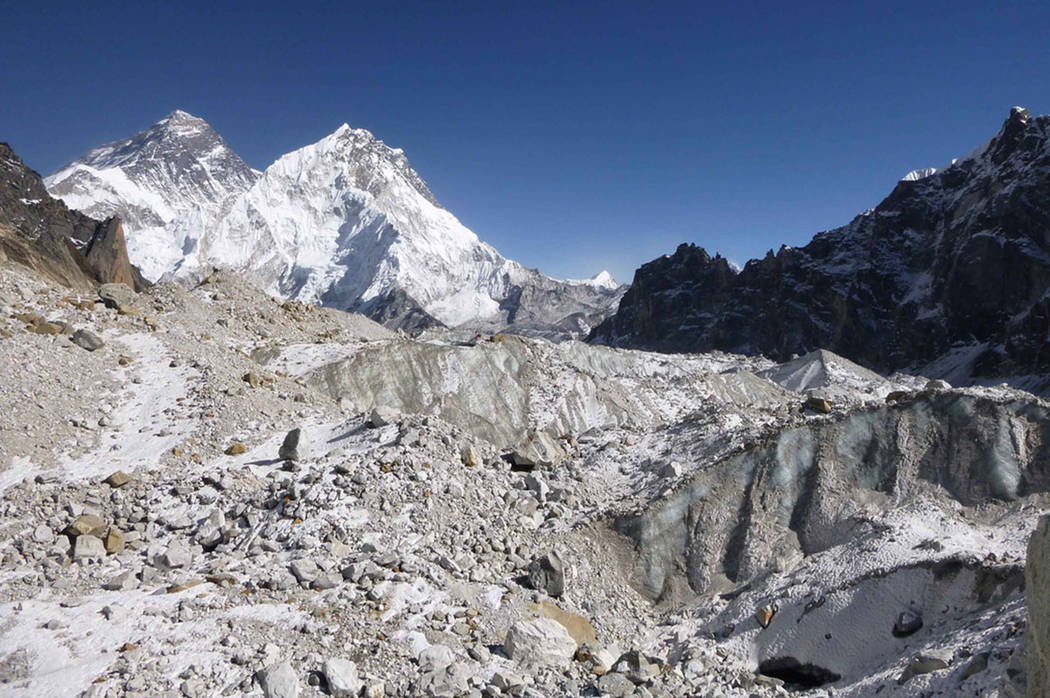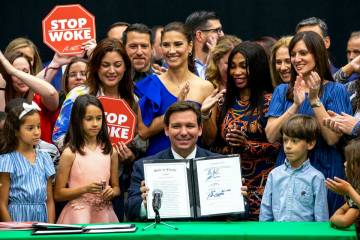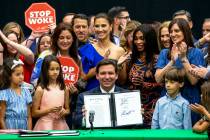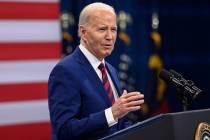VICTOR JOECKS: Climate movement plagued by hypocrisy and despair
Those most concerned about climate change have increasingly resorted to one of two looks: hypocrisy or despair.
Hypocrisy is the preferred choice of politicians, such as the leading Democrat presidential candidates.
“Climate change poses an existential threat — not just to our environment, but to our health, our communities, our national security and our economic well-being,” Joe Biden’s climate plan states.
Biden believes that an increase in greenhouse gases, such as carbon dioxide, is causing global warming. Using fossil fuels produces carbon dioxide. Emissions also come from breathing, volcanos, forest fires and cow farts — not a joke.
Biden says his plan will ensure the United States “reaches net-zero emissions no later than 2050.”
Those words sound nice, but what they mean might surprise you. Biden is proposing eliminating gasoline-powered cars, airplanes and natural gas and coal power plants. In 2017, those types of plants generated 64 percent of the nation’s power. Wind and solar combined for 7 percent.
The cows are going to have to go as well. Where’s PETA when you really need it?
While Biden is willing to ban your gasoline-powered car, he’s not willing to give up his private jets. The former vice president has already spent $256,000 on charter flights, according to The Assocated Press.
Not everyone who says they’re worried about climate change is a hypocrite. There are those who take the doomsday predictions so seriously that they’ve decided not to have children.
Over the past several years, outlets ranging from NPR to The New York Times to the BBC have profiled people who say they aren’t having children “to save the planet.”
Allison Guy told the Times last year that she would have kids if she wasn’t so worried about climate change. “I don’t want to give birth to a kid wondering if it’s going to live in some kind of ‘Mad Max’ dystopia,” she said.
Give these folks credit for having the courage of their convictions. But what a tragedy — parenting is one of life’s great adventures with its impossible-to-replicate joys and woes. It’s even sadder, however, because of how misguided they are.
This is the best time in human history to have a child. It’s not even close. In 1919, the infant mortality rate — the number of children who died before their first birthday — was around 1 in 10. Today, the rate is 1 in 172. Your children are 17 times more likely to make it to their first birthday now than they were 100 years ago. Mothers do better, too. Per 100,000 births, maternal death rates fell from more than 800 in 1900 to 26 in 2015. That’s to say nothing about all the technological improvements that have boosted average life expectancy in the United States by around three decades since 1900.
The air has gotten better, too. Of the nine air pollutants measured by the EPA, all of them have declined since 1990. Visibility is also improving. Even U.S. carbon emissions are dropping.
For decades, environmental doomsayers have been certain the end of the world is nigh. In his 1968 book “The Population Bomb,” Paul Elrich predicted population growth would lead to disasters ranging from mass starvation to human extinction. Instead, the world kept growing and poverty kept falling. Technology allowed farmers to produce more food more efficiently.
Expressing concern about the environment doesn’t have to boil down to a choice between hypocrisy or despair. The third way involves recognizing that the planet’s most important resource is the ingenuity of the human mind.
Contact Victor Joecks at vjoecks@reviewjournal.com or 702-383-4698.





























